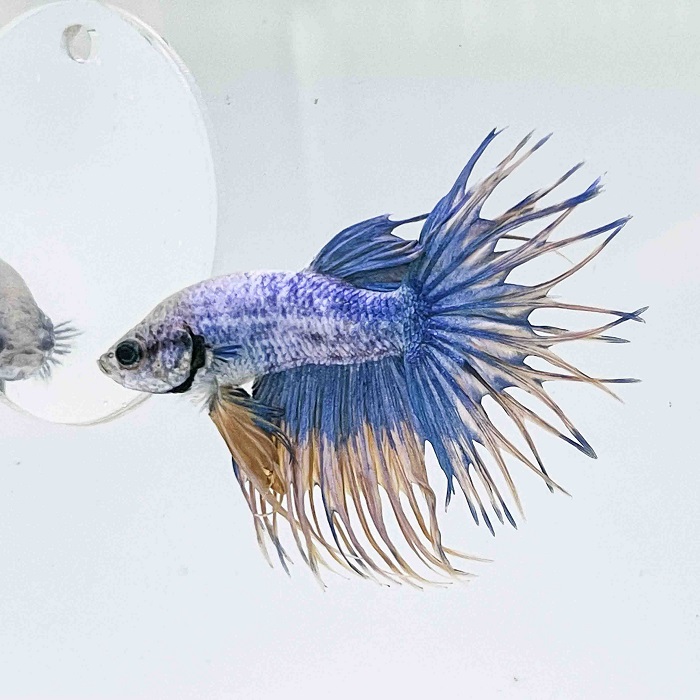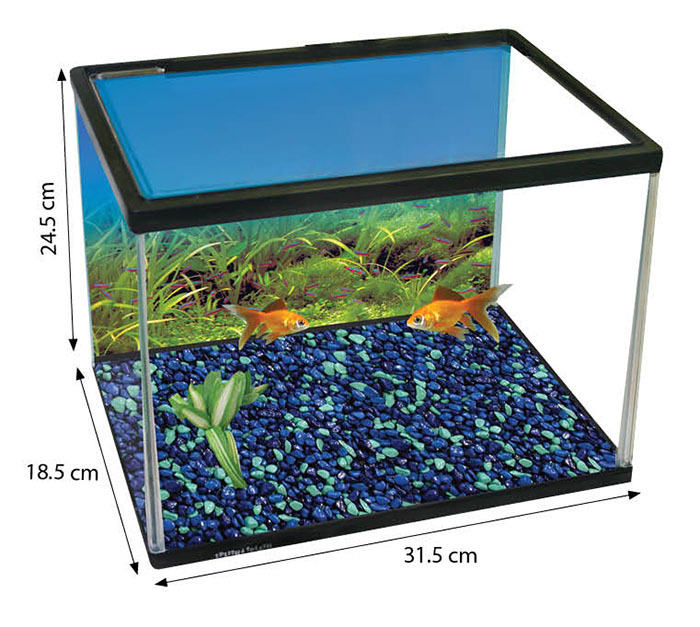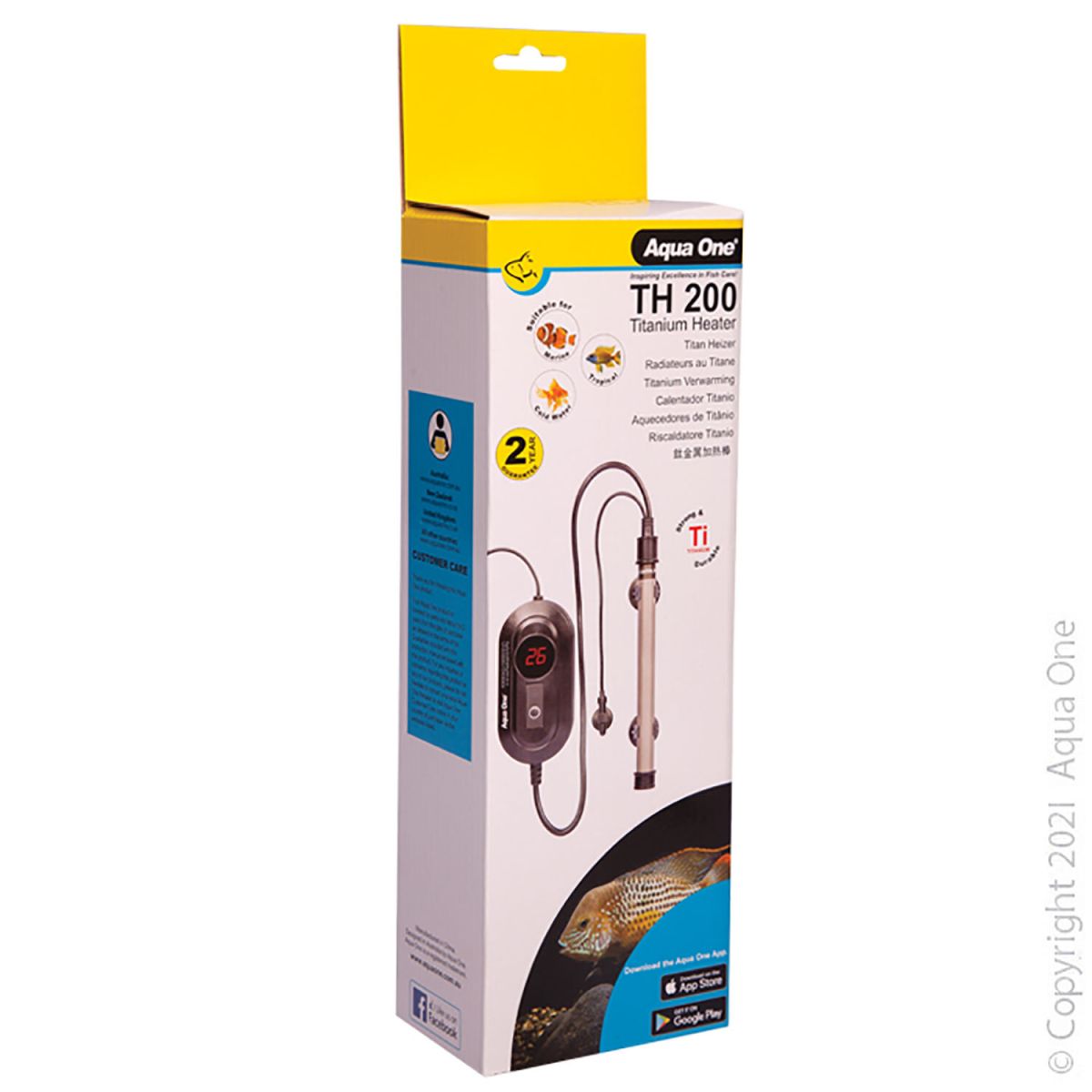Choosing the Best Aquarium Heater
On: 26 June 2024
Wondering how to pick the best heater for your aquarium? Discover how...
If you have an aquarium, chances are, you already know how important it is to keep your aquarium parameters in check to keep your fishy friends happy and healthy. Keeping your tropical fish at an ideal temperature is crucial, especially when the chill of winter sets in. Enter the trusty aquarium heater! But with so many options, how do you pick the perfect one for your underwater pals? Don't worry, we've got you covered.
Understanding the Importance of Aquarium Heating
Before diving into the nitty-gritty of heater selection, let's understand why aquarium heating is essential. Fish are cold-blooded animals and since they can’t control their body temperature, they rely on the temperature of their environment to do this for them. Like us, fish thrive in a stable environment to help maintain healthy activity levels.
For many tropical species, maintaining a consistent warm temperature is vital for their well-being. So when the ambient temperature drops, a good heater keeps their habitat comfy and stress-free.
How Do Aquarium Heaters Work?
Aquarium heaters use a heating element, such as a coil or a ceramic rod, to transfer heat to the water. The heating element is usually encased by a thermostat, which monitors the water’s temperature and adjusts the heater’s output accordingly.
Most aquarium heaters will have a type of dial or digital display that allows you to set the desired temperature for your tank. The heater then works to maintain this desired temperature by switching on and off as needed.
Some heaters will come with a thermostat, others will need to be used with a thermometer.
Sizing Up Your Heater 
So, how do you determine the right heater size for your aquatic haven? It's all about knowing your tank's capacity and the room's chill factor. If you don’t already know the capacity of your tank, not to worry – it’s easy enough to calculate.
First, calculate your tank's volume by multiplying the height, width and length measurements. Keep in mind that you’ll want to measure up to the waterline to determine how much water is in your tank.
Since we typically measure aquarium capacity in litres, you'll need to convert the volume from cubic centimetres to litres. You can do this by dividing the cubic centimetre measurement by 1000, as there are 1000 cubic centimetres in a litre.
What wattage aquarium heater do you need?
Aquarium heaters will come with different wattage. Essentially, wattage is a measurement of power consumption and the larger your tank, the more power it takes to heat.
As a rule of thumb, we recommend aiming for around 1 watt per litre of water in your aquarium. For example, if your tank holds 250 litres, opt for a 250-watt heater as a starting point.
Consider Room Temperature
But wait, there's one more consideration to make! Factor in the lowest room temperature where your aquarium is set up - this is typically early in the morning. If this drops more than 5 degrees Celsius below your desired tank temperature, you might need a beefier heater to compensate. Remember, it's better to be overprepared than like a fish out of water!
Choosing the Right Type of Heater
Now that you know what size heater you need, there are a few features to consider when selecting a heater for your aquarium.
Hang-on or Submersible Heaters
As the name implies, hang-on heaters will hang over the side of your tank, usually attached with suction cups. These heaters are generally quite compact, simple and easy to use, so are a great option for small tanks. Sometimes with larger aquariums, hang-on filters fail to heat the tank water evenly.
Submersible heaters are the most common type of aquarium heater. They’re designed to be fully submerged in water and usually come with suction cups to secure to the side of the tank. In general, submersible heaters offer a more consistent heat distribution than hang-on heaters – making it ideal for larger aquariums.
Ultimately, the size of your tank and how you want to position your heater amongst your décor will determine which way you go here.
Heater Temperature range and accuracy
Some heaters will have a slightly larger adjustable temperature range. They will also have varying levels of accuracy. Your ideal water temperature and the level of precision you want to maintain will largely depend on the type of fish or plants you’re keeping.
Economical heating
An aquarium heater should automatically shut off once it reaches the desired temperature and switch back on once the temperature drops. Some heaters are naturally more economical in their design. Often, titanium heaters are quite economical as they are generally a better heat conductor than glass.
Heater composition and durability 
Aquarium heaters are most commonly made from glass or titanium. Some come with protective casing and others are shatter-resistant. The material of your heater is an important consideration as it can both protect your fish from being exposed to the heating rod, it can also protect your heater from being damaged by rough fish (yep, it is possible for fish to shatter heaters!). Some materials are also less prone to corrosion which is important to consider if longevity is important to you.
Aquarium thermostat
Some heaters will come with an external thermostat controller which allows you to maintain your desired temperature with precision and without disrupting your aquatic inhabitants.
Final Thoughts: Choose Your Heater Wisely
When it comes to picking the best heater for your aquarium, knowledge is key. By understanding your tank's size, room temperature, and the various heater options available, you can make an informed decision that keeps your aquatic friends happy and healthy. So, don't let the chill get you down—dive in and invest in a quality heater and watch your underwater world thrive!
Shop our range of aquarium heaters now.








